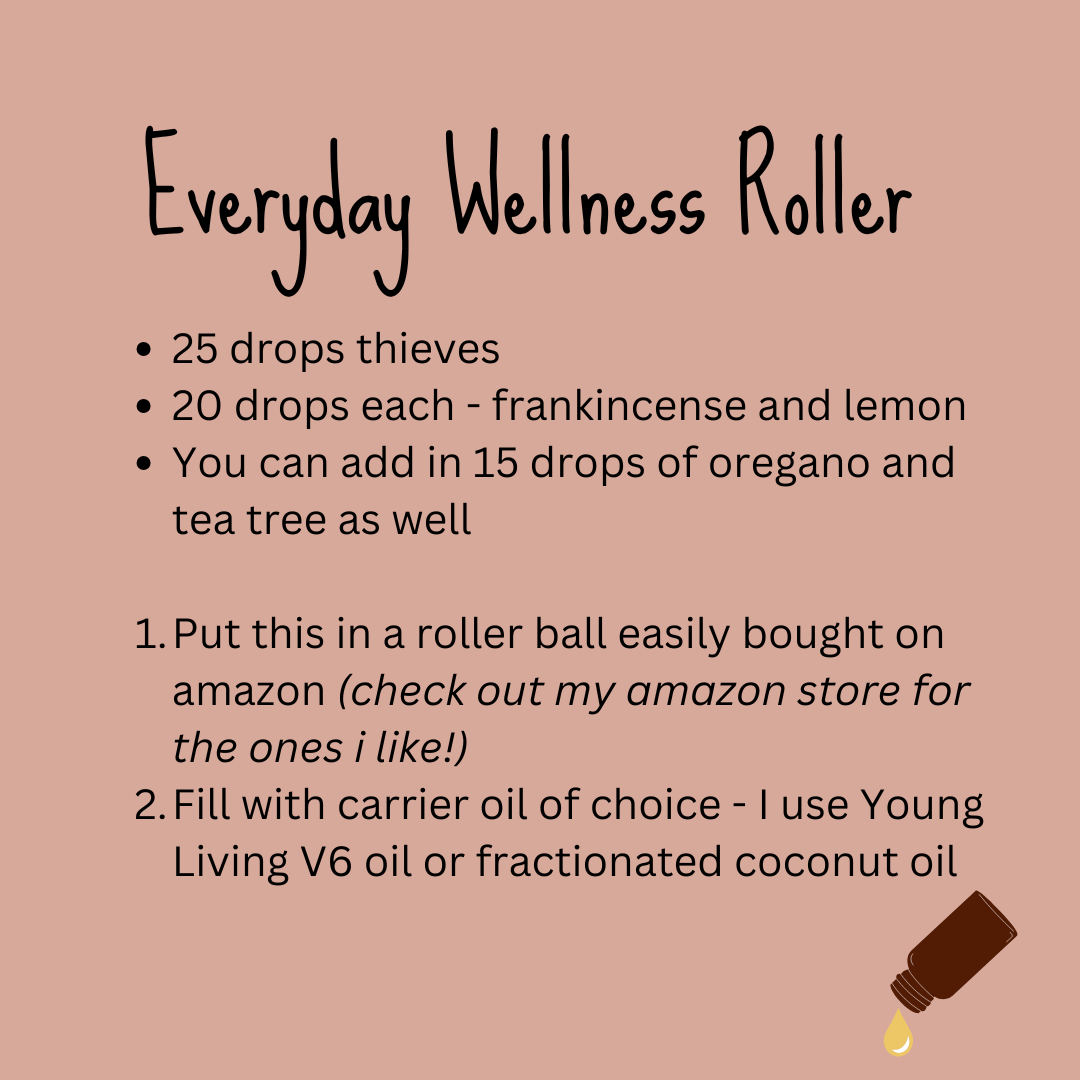
As busy moms, we’re constantly juggling the never-ending to-do list, from kids' activities to work and everything in between. It’s easy to feel like we don’t have time to focus on our own health—especially when it comes to gut health. But here’s the truth: taking care of your gut doesn’t have to be complicated or time-consuming. You can incorporate simple, nourishing snacks that support your digestion and keep your energy levels steady throughout the day.
Here are some of my favorite gut-healthy snacks that are easy to whip up and perfect for those on-the-go moments:
1. Organic Yogurt with Chia Seeds and Berries
Yogurt is packed with probiotics, which help promote healthy digestion by supporting the good bacteria in your gut. To take it up a notch, toss in some chia seeds for added fiber, which keeps things moving, and top it off with antioxidant-rich berries. This combo is a delicious way to keep your gut happy and your energy steady.
2. Apple Slices with Almond Butter and Cinnamon
Apples (especially with the skin on) are rich in fiber, which is key for digestion. Pairing them with almond butter gives you healthy fats, while cinnamon adds flavor and an anti-inflammatory boost. It’s a simple, tasty snack that hits the sweet spot while also being great for your gut.
3. Homemade Trail Mix with Walnuts, Pumpkin Seeds, and Dark Chocolate
Walnuts and pumpkin seeds are high in omega-3s and fiber—two nutrients that your gut loves! And let’s not forget about dark chocolate, which contains polyphenols that act as probiotics, feeding the good bacteria in your digestive system. This trail mix is easy to prep and can be stored in small bags, making it a perfect snack to grab as you head out the door.
4. Carrot Sticks with Hummus
Carrots are a great source of prebiotic fiber, which helps feed the beneficial bacteria in your gut. Pair them with hummus for a dose of healthy fats and protein that will keep you fuller for longer. This snack is not only good for your gut, but it’s also super easy to pack in lunchboxes or munch on while multitasking.
5. Kefir Smoothie with Spinach, Banana, and Flaxseeds
Kefir is a probiotic powerhouse, full of good bacteria that support digestion. Blend it with spinach for extra fiber, a banana for prebiotics, and flaxseeds for those gut-loving omega-3s. You can also swap out the kefir for organic coconut yogurt if you prefer a dairy-free option!
With these easy snack ideas, you can support your gut health while still managing the chaos of motherhood. You don’t have to sacrifice your well-being just because life gets busy. These snacks will keep you fueled, nourished, and feeling your best!
So the next time you're hungry, skip the processed snacks and give one of these gut-friendly options a try. Your body (and your gut) will thank you!

I used to think that keeping my gut happy required stocking up on an arsenal of supplements and pricey pills. Every wellness aisle and social media ad seemed to scream that a healthy gut was only one purchase away. I bought into the trend, thinking more bottles meant better health. But after years of trial and error (and some wasted money), I discovered an eye-opening truth: your plate can be your gut’s best friend.
Turns out, nature knows best. The secret to supporting your digestive system doesn’t lie in capsules or powders; it’s in real, whole foods. Think about it: your body was designed to thrive on what comes directly from the earth. When I shifted my focus from supplements to my meals, I noticed an incredible difference in how I felt day to day.
So, what does gut-friendly eating really look like? Let’s break it down:
1. Fiber-Rich Veggies: Vegetables like spinach, carrots, and sweet potatoes are powerhouses for your gut. They’re packed with fiber, which helps keep things moving smoothly in your digestive system. Plus, fiber feeds the beneficial bacteria in your gut, creating a happy and balanced microbiome.
2. Probiotic-Packed Yogurt: A good-quality yogurt is more than just a tasty snack—it’s a source of live cultures that replenish your gut flora. Those little active cultures can help support digestion, boost your immune system, and keep that gut-brain connection on point.
3. Fermented Favorites: Fermented foods like sauerkraut, kimchi, and kombucha might sound trendy, but they’ve been staples in various cultures for centuries. Fermentation adds beneficial bacteria to your diet, helping keep your gut’s ecosystem diverse and thriving. And hey, they’re flavorful too—an easy way to add a tangy kick to your meals.
When I started making these changes, I realized that not only did my digestion improve, but I also felt more energized. Plus, leaning into whole foods meant that my meals were naturally more satisfying and nutritious. No more endless searching for the next supplement trend—just simple, delicious, gut-friendly eats.
So next time you’re planning your meals, think about how you can nourish your gut with real, whole foods. Look at your plate and ask, “Is this fueling my body with goodness straight from nature?” Your gut (and wallet) will thank you for it.

As a busy mom, my days are full! Between taking care of my son, managing work, staying on top of house tasks, and (if I’m lucky) squeezing in a moment for myself, it feels like I’m always on the go. But I’ve found a little secret weapon that keeps me feeling grounded, energized, and ready to take on the day—essential oils.
Essential oils are such a simple way to bring in moments of self-care and support my body and mind. They’re not just about nice smells; they actually support everything from my immune system to my emotional health. Here are some ways I incorporate them into my daily routine that you can try too!
1. Peppermint Oil Wake-Up Call
If I need an extra boost in the morning (and let’s face it, I always do!), I add a few drops of peppermint oil to the shower. The steam from the hot water mixes with the peppermint, creating a refreshing, spa-like experience that wakes me up and leaves me feeling alert. It’s the quickest way to kickstart my day.
2. Citrus Oils for Energy in the Kitchen
I love popping a diffuser in the kitchen or living room with a few drops of citrus oils, like lemon or orange. These oils are known for their uplifting and energizing properties, and they help give me a natural energy boost while I’m preparing breakfast or running around the house. Plus, they make the whole space smell fresh and inviting!
3. On-the-Go Support with a Rollerball Blend
For moments when I need a quick reset on the go, I keep a rollerball of my favorite essential oil blend in my bag. Whether I’m sitting in traffic, at the grocery store, or taking my son to the park, a quick swipe on my wrists or neck gives me a boost and keeps me grounded.
4. Immune-Boosting Fall Cleaner
Young Living’s fall-scented cleaner has become a household favorite! It not only keeps my home smelling like autumn (yes, please!), but it’s also made with oils that help support our immune systems. So, while I’m tackling housework, I know I’m also helping keep us healthier.
5. Lavender for a Calm Night
After a long day, winding down can be a challenge for everyone in the family. I like to end our day by diffusing lavender in the bedroom to create a calm, peaceful atmosphere. The soothing scent helps us all relax, making bedtime routines a little smoother and helping me get the rest I need.
These small, intentional tweaks fit seamlessly into my packed schedule, offering moments of calm, energy, and wellness when I need them most. So, if you’re looking to add a little more balance to your busy day, try adding essential oils into your routine! Which one will you try first?

As we head into the chilly months, the arrival of the dreaded “sick” season is on many moms' minds. No one wants to spend these cozy fall and winter days fighting off colds. While we can’t dodge every germ out there, we can take small, proactive steps to help support our immune systems—starting right at home with simple wellness routines!
If you're looking for easy ways to keep you and your little ones feeling strong, this DIY immune-boosting essential oil roller might just be your new best friend. It’s perfect for on-the-go application and can easily become part of your daily wellness routine, alongside good nutrition, staying active, and plenty of rest.
Why Use an Immune-Boosting Roller?
Essential oils like thieves, lemon, and frankincense are known for their natural, immune-supporting properties. When applied topically, they can deliver those benefits directly into your body. And because this roller is gentle and safe for kids (when diluted properly), it’s a practical way to boost immunity for everyone in the family!
DIY Immune Roller Recipe
Here’s a quick recipe for a DIY immune-boosting roller you can easily put together in just a few minutes.

How to Use It
To make the most of your immune-boosting roller, simply apply it to the bottoms of your feet and down the spine. The skin in these areas absorbs the oils quickly, and the feet are great for distributing oils throughout the body.
Apply it in the morning before school drop-offs, after baths, or any time you need a little extra support. You can even throw it in your purse for quick, on-the-go use!
Final Tips
Remember, essential oils can be strong for little ones, so always dilute and test a small patch on their skin first. And while this roller can be a great addition to your wellness routine, pair it with other immune-boosting habits like nutritious meals, plenty of water, and good sleep.
This simple DIY roller is a handy wellness tool for any mom looking to keep her family healthy this season—without too much fuss. Here’s to a season full of health and fewer sniffles!

I used to LOVE candles. I’m talking borderline obsession here—I had so many going at once it’s a miracle I didn’t burn down the house! But now, looking back, I can’t believe what I was doing to my health. I’m just grateful my body survived it all
The thing is, most candles out there aren’t as harmless as they seem. In fact, many of them are straight-up bad for you. I had no clue at the time, but once I dug into what’s actually in the candles I was burning daily, I knew something had to change.
Here are just a few of the issues most candles cause:
- Paraffin Wax – Most candles are made from paraffin, which is a petroleum byproduct (yikes!). When burned, it releases harmful chemicals like benzene and toluene—both known carcinogens. Not exactly what you want floating around in your home, right?
- Artificial Fragrances – We all love that cinnamon spice or vanilla bean scent, but those artificial fragrances can emit chemicals that contribute to indoor air pollution. These can trigger respiratory issues, allergies, and who knows what else.
- Wicks with Metal Cores – Some candles have wicks that contain metal, which can include lead. When burned, they release toxic particles into the air—definitely not something you want your family (or yourself) breathing in.
Making the Switch to Essential Oils
When I realized what I was doing to my body (and the indoor air quality of my home), I knew it was time to ditch the candles. That’s when I discovered the magic of diffusers. Let me tell you, it was a total game-changer!
Now, I’ve definitely gone a little overboard with my collection of diffusers—I might have more than one or five 😂. But hey, they’re way better for my health, and a lot of them have a candlelight setting that mimics that cozy glow I used to love.
Why Essential Oils Are Better
Essential oils give me the same amazing seasonal smells I loved from candles—without the toxins. Plus, they come with health benefits! Whether it’s lavender for relaxation, eucalyptus for clearing the airways, or orange for a mood boost, essential oils do way more than just make your home smell nice.
So, if you’re still clinging to your candle obsession (no judgment, I get it!), maybe it’s time to give essential oils a try. Your body—and your indoor air quality—will thank you.




